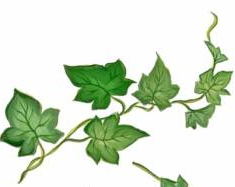Annie Dillard's "Living like Weasels"
For the short story see Living Like Weasels
(The metaphors of nature & wildness reexamined) from the author Pilgrim at Tinker Creek, anthologized by Melissa Walker, pp. 63.
 1.
Together answer: "How is the Dillard essay constructed?"
Do describe each of its parts.
1.
Together answer: "How is the Dillard essay constructed?"
Do describe each of its parts.
17 paragraphs in five acts (parts)
¶ Characteristic features: explanation of meaningpages
1-2 Premonition: Wild, ETS story, talons, bones and death in life in death.
63
3-7 Setting -- time and place. Hollins/Murray's Pond (Walden) sunset in suburbia!
63-64
8-11 THE ENCOUNTER; a shocking, world changing - view & an upsetting event!
64-65
12-14 Reflection on the loss and what this means; thoughtful people are not so free.
65
15-17 The didactic quality, meaning or lesson of this story: she tells you how to live!
65-66
Her conclusive remarks
15 symbiosis two minds become one as open as the land is to snow!
16 freedom of necessity (not as customarily thought -- of will to choose)
17 life advice on how to live "grasp your one necessity"
2. What uses does this author make of "premonition?" That is how does she utilize imagery to foreshadow some later reuse of images or phrases to tell a story or deepen her initial memory of this experience?
seize grip wild rose stunned stillness bondage vs. necessity
3. What happens?
She meets her equal, in a weasel (lowly rodent)!
The use of IRONY to forcefully convey an unconventional comparison of a thinking human and a thoughtless animal.
weasels are: wild predatory hunters
Although startled easily, they are–nonetheless–tenacious stalkers.
living in their "physical senses" determined
persistent free perseverance
We should be as "proper, obedient & pure" & "not let go" survivors of even death
¶14 noticing everything, remembering nothing
¶15 Down is a good place to go
Could two live under the wild rose
¶16 "perfect freedom of single necessity
5. Answer
her question in ¶ #15; "Could two live
that way?"
No this is absurd, even irritating, to think we can give up our mental faculties!
perhaps this is the unity nature requires and to which we may strive but never reach
Yes as partners or the child at the breast of the mother, friends & stalkers, real lovers
6. What does Dillard mean by equating freedom & necessity in ¶#16
she reverses (irony) our usual notion of freedom to choose
free is equated –instead– with instinctually free from thought, emotion, or conscience
humans are slaves to ideas, the mind, the ideology of the group, fads
wild animals are free even from death because they are true –tenacious– to their instincts
7. The point is:
marriage of necessity
we need to treat nature as a partner, participant and even lover
"This is yielding, not fighting" (¶16)
Learn how to live! "Then even death.... can not you part." (¶14-17)
The Imperiled Planet | The Dominant Animal | Storm Over the Amazon | The Tragedy of the Commons | The Web of Life